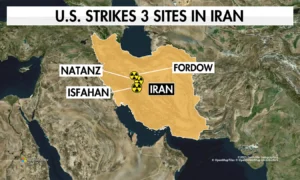No longer is Robert F. Kennedy Jr. hesitating on his ambitious goals for the nation’s vaccination safety system.
During his confirmation by the Senate earlier this year, the health secretary—a lifelong vaccination skeptic—promised to ignore it. On the other hand, Democrats brought up the fact that the majority of scientists and public health professionals strongly disagree, but Kennedy remained unmoved at Tuesday’s House health panel hearing, saying there was good cause to be concerned about the safety of particular vaccinations.
“How on earth can you compel these items on otherwise healthy children without first determining their risk profile?” Kennedy made the statement while defending his decision to remove 17 members and replace them with 8 new members, a number of whom expressed doubts about the safety of vaccines, from a CDC vaccine advisory group earlier this month.
Although President Trump’s proposed budget for the Department of Health and Human Services for fiscal 2026 was the formal subject of the hearing, Kennedy spoke after Trump reversed his earlier recommendations for healthy adults and children to receive Covid injections and removed independent vaccine experts. Instead of concentrating on Trump’s proposal to slash the HHS budget in half, several Democrats preferred to pay more attention to such decisions.
They said that research has always shown that vaccines are safe, and they anticipated that Kennedy’s actions will make people doubt vaccines and even kill more people.
“It’s evident to me that the great majority of scientists and medical professionals view your stances on vaccines as harmful,” stated Frank Pallone, the senior Democrat on the Energy and Commerce Committee, who represents New Jersey. “You are not supported by the science. People are going to die because of what you’re doing, in my opinion.
Things heated up after that. Kennedy said that Pallone had taken campaign donations from pharmaceutical companies and thereby abandoned victims of vaccination injuries.
Diana DeGette of Colorado, the lead Democrat on the Energy and Commerce Health Subcommittee, brought up a point of order, stating that Kennedy ought to retract his criticism of Pallone’s lack of honesty.
Despite Kennedy’s retractions, tensions continued to rise. Kennedy remained firm when questioned by Illinois Democrat Robin Kelly on his decision to no longer promote the COVID-19 vaccine to pregnant women, a decision that has been assailed by physicians’ groups.
Noting that “study after study shows adverse effects,” he explained, “we are no longer recommending it because there is no science supporting the recommendation.” He mentioned that one study had discovered an increased chance of miscarriage.
Many in the field of public health, including several that HHS has referenced, disagree with that assessment.
The specialists the government has depended on, according to Kennedy, were “rife with conflicts of interest” with pharma firms and had “committed multiple acts of malpractice.” This includes the people he sacked from the vaccine advisory council.
Tomorrow, in the Atlanta headquarters of the Centers for Disease Control and Prevention, the first meeting of the newly constituted panel of advisors by Kennedy will commence. Kennedy has long sought the removal of the vaccine preservative thimerosal; he has called the COVID-19 vaccine the “deadliest vaccines ever made”; and he has linked the measles vaccine to autism.
In contrast to his more recent congressional hearings, where he only halfheartedly supported measles vaccines, Kennedy took a far more conciliatory stance on vaccines while running for the position of head of the Department of Health and Human Services.
Representing Washington state, Democratic Rep. Kim Schrier accused Senator John F. Kennedy of misleading the head of the Senate Committee on Health, Education, Labor, and Pensions over his vaccination policy goals.
At the committee level, Cassidy’s vote determined Kennedy’s confirmation. The Republican from Louisiana stated that he consented to vote for Kennedy contingent upon Kennedy’s assurance that he would not disrupt the nation’s procedure for making decisions about vaccines.
According to a representative for Cassidy, the senator “has said publicly that the agreement was about the ACIP process, not the staffing of ACIP.” Additionally, Kennedy informed Schrier that he never promised Cassidy that he wouldn’t make changes to the Advisory Committee on Immunization Practices.
Last night, Cassidy wrote an article for X in which she criticized Kennedy for reshuffled the advisory group and said that the new members Kennedy selected had the necessary expertise. He begged Kennedy to postpone the gathering so that new members could be appointed.
The consequences of some vaccine-preventable illnesses in youngsters were graphically outlined to Kennedy by doctor Schrier.
She described the symptoms of whooping cough in older children as follows: strong coughing, vomiting, difficulty breathing, rib fractures, and the ineffectiveness of medications if not treated within two weeks.
The United States has some of the poorest health results among rich countries, yet several Republican senators defended Kennedy for challenging conventional knowledge in an effort to better the situation.
Once again, I appreciate your innovative thought. “That’s what it takes,” Rep. Gus Bilirakis (R-Fla.) stated in reference to Kennedy’s backing of incentives for pharmaceutical companies to research treatments for rare pediatric ailments.
Another Republican from Florida, Rep. Kat Cammack, called Kennedy “a disruptor” and added, “That’s what we need in these times because so many people, especially in Congress, want to maintain the same broken status quo.” A







